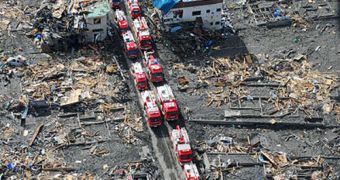A number of scientists in the United States have been trying lately to reassure the general public that the effects of the nuclear crisis currently unfolding in Japan will not affect the country. They also spoke about the possible repercussions of an earthquake striking nuclear power plants in the US as well.
There are some areas around the country that are prone to experiencing earthquakes, and yes, they do have nuclear power plants. However, the type of protective measures taken to ensure their integrity in case of a natural disaster should reassure citizens of their safety.
As far as the crisis in Japan goes, two things are important to keep in mind – authorities in the Asian nation are on top of the situation for now, and the country is very far away from the United States.
Radiation exposure is therefore unlikely to occur, especially considering that clouds containing the radioactive particles would have to cross the Pacific Ocean. If they attempt to do so, all dangerous material will be washed by rains and stored in the ocean before it reaches Hawaii or the West Coast.
“As far as the United States goes, we have a lot working in our favor: very large distances, some 5-6,0000 miles is the pathway of the wind,” said radiation exposure expert Tom McKone.
The specialist, who holds an appointment with the US Department of Energy's (DOE) Lawrence Berkeley National Laboratory (Berkeley Lab) Environmental Energy Technologies Division, was speaking to a MarketWatch reporter on this issue on March 15.
“What I am more concerned about in North America is the stress levels that we are creating for ourselves,” he added, saying that public health will be more severely affected by anxiety than by any potential radiation exposure.
The expert said that people in California have no need to stockpile potassium iodide pills, as some news outlets reported was happening. “It’s not going to help them because there is no iodine exposure that they need to block in California,” he told KTSF 26 on another occasion.
Berkeley Lab Accelerator and Fusion Research Division senior scientist Per Peterson showed that the North American nuclear power plants situated in disaster-prone areas – such as California – will not be endangered by tsunamis due to the type of fault line they are built on.
The Japan Trench (where the March 11 tremor originated in) is a “thrust” fault, whereas the San Diego is a “slip-strike” fault line, incapable of producing such large tsunamis. The expert made the analysis in a March 17 issue of the Wall Street Journal.

 14 DAY TRIAL //
14 DAY TRIAL //